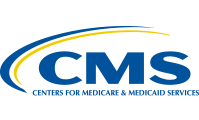Ohio Hospital for Psychiatry in Columbus, Ohio, provides age-appropriate inpatient programming for senior adults via our Generations program. The Generations program features an array of personalized interventions that have been specifically designed to help seniors who have been struggling with dementia-related illnesses and other mental health concerns.
About the Generations Program
Introduction to inpatient care for senior adults in the Generations program at Ohio Hospital for Psychiatry in Columbus, OH
The Generations program offers focused, age-appropriate services for senior adults whose lives have been impacted by depression, bipolar disorder, schizophrenia, dementia-related illnesses, and other mental health concerns. We also serve seniors who have a primary diagnosis of a mental health disorder and a co-occurring substance use disorder.
The general goal of the Generations program is to provide personalized short-term services that promote stabilization and empower patients to return home or step down to a less intensive level of care. Typical length of stay in the Generations program at our hospital in Columbus, Ohio, is seven to 14 days based on each senior adult’s needs and progress.
Customized care is a hallmark of treatment within the Generations program. Each patient’s experience is guided by a personalized treatment plan that is based on a thorough assessment of their history, needs, and goals. Care is provided by teams of compassionate professionals who are experienced at helping older adults and their families.
Services within the Generations program include basic medical care, medication management, individual therapy, group therapy, family therapy, and detailed discharge planning. Senior adults whose co-occurring substance use concerns include an addiction to opioids or certain other drugs may also take part in medication-assisted treatment at our hospital in Columbus, Ohio.
Our Approach to Treatment
How the Generations program in Columbus, OH, helps senior adults who have been struggling with mental health concerns and co-occurring substance use disorders
Treatment within the Generations program is based on our unwavering belief that each senior adult is a unique individual who deserves the highest quality of personalized care, and who should never be defined by the disorder they suffer from.
We encourage each patient to play an active role in their treatment, and to take ownership of their recovery, to the greatest degree that they can. We celebrate each senior’s inherent strengths, we honor their voice, and we respect their insights, preferences, and perspective.
At Ohio Hospital for Psychiatry, we also understand how our patients’ struggles can impact their spouses, adult children, and other loved ones. We work diligently to ensure that family members have the information and guidance they need so that they can understand the scope of their loved one’s challenges and provide the most meaningful support during and after their time in our care.
When you choose the Generations program for senior adults in Columbus, Ohio, you can rest assured that you or your loved one will receive premier services in a safe, dignified, and highly supportive environment.
Elements of Care
Features of inpatient treatment in the Generations program for senior adults at Ohio Hospital for Psychiatry in Columbus, OH
We place great emphasis on providing personalized treatment for each senior adult who is entrusted to our care. Thus, no two patients will ever have identical experiences in the Generations program at Ohio Hospital for Psychiatry in Columbus, Ohio.
Depending on each patient’s unique needs, their customized care within the Generations program may include elements such as the following:
Basic medical care: Our medical staff is available to provide basic medical care on an as-needed basis throughout a senior adult’s time in the Generations program. If a patient develops medical needs that exceed our capacity to address, we will work with them and their family to make the most appropriate referral to a trusted healthcare provider in the Columbus, Ohio, area.
Medication management: If a senior adult’s mental health symptoms can be eased with certain prescription medications, they may receive medication management services while they are taking part in the Generations program. Patients who receive these services typically meet with a psychiatrist five times per week. Medications may also be monitored and administered by members of our nursing staff.
Individual therapy: Patients in the Generations program typically meet with a clinical therapist for individual sessions two to four times per week. Individual sessions are optimal opportunities for senior adults to process their experiences, address topics that they may be hesitant to bring up in a group setting, and receive focused feedback from an experienced member of their treatment team.
Group therapy: Each treatment day in the Generations program features multiple groups. These sessions address a wide range of topics that are relevant to senior adults. Group topics may include reminiscence, trivia, coping skills, memory skills, self-awareness, positive communication, self-expression, and emotional awareness. Patients in the Generations program may also participate in art therapy groups, music therapy groups, cinematherapy groups, and movement groups. Groups are typically led by a clinical therapist or a recreation therapist.
Family therapy: Family therapy sessions can be vital sources of information, education, and support for Generations patients and their loved ones. During these sessions, family members can learn more about the challenges that their loved one is facing and process how they’ve been impacted by their loved one’s mental health struggles. These sessions can also help all participants resolve conflicts and learn how to better support one another. Family sessions are available on an as-needed basis within the Generations program.
Prior to each senior’s transition out of our care, they and their family will receive a detailed discharge plan. This customized document will identify the resources that will support their efforts to maintain and build on the progress they made while they were receiving care in the Generations program at Ohio Hospital for Psychiatry in Columbus, Ohio.






